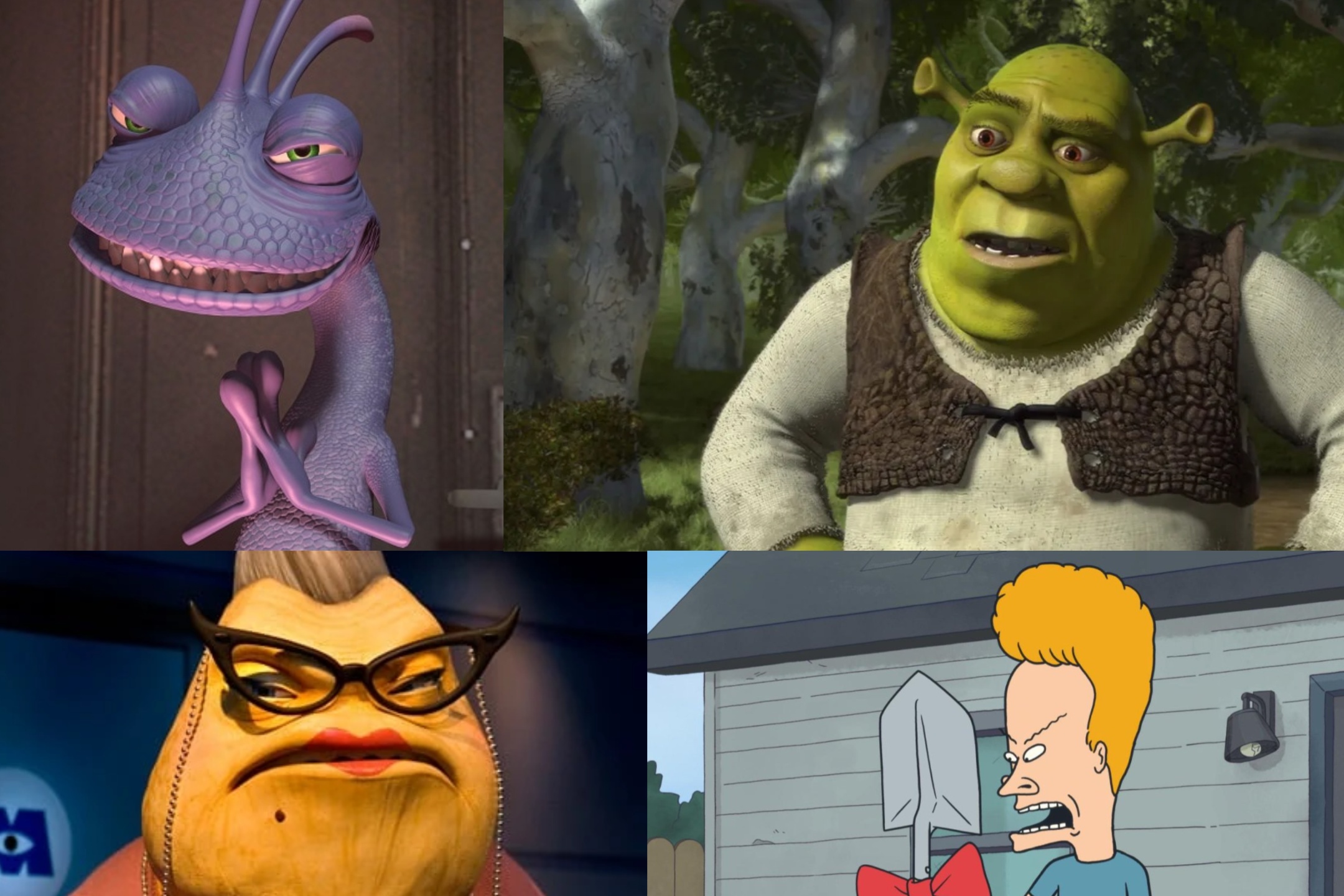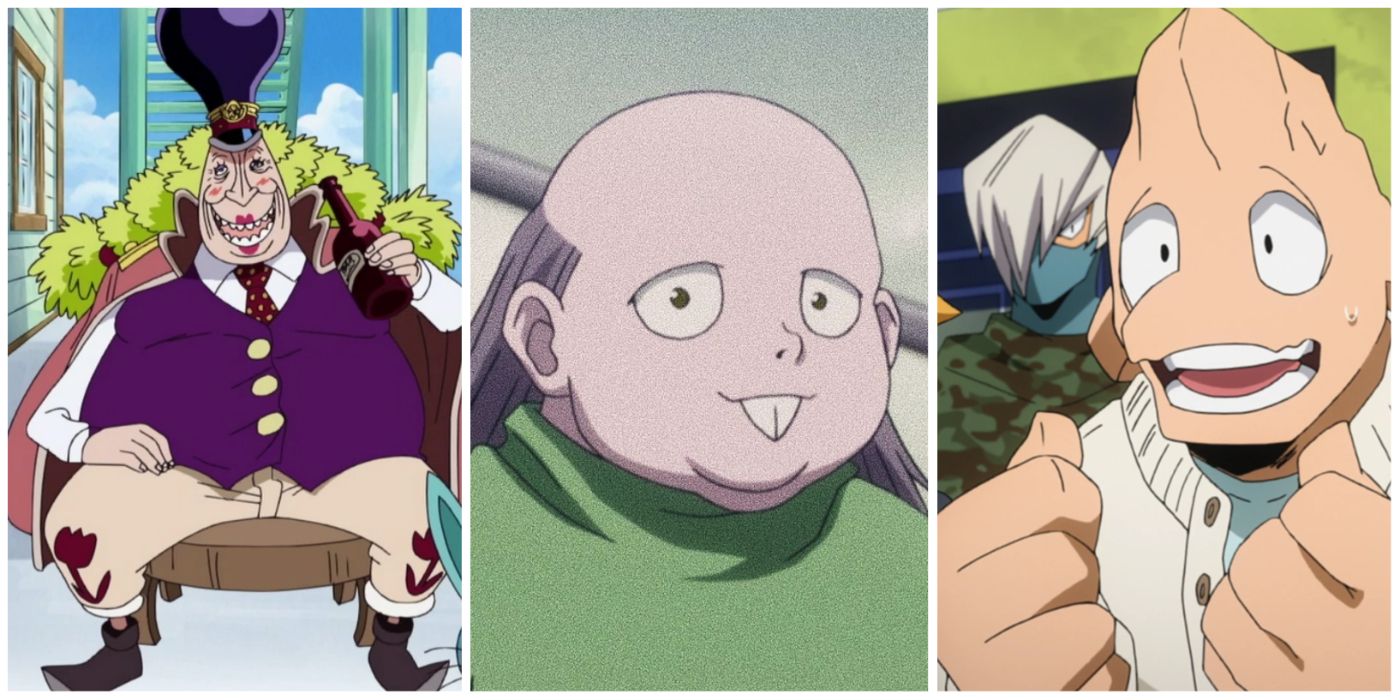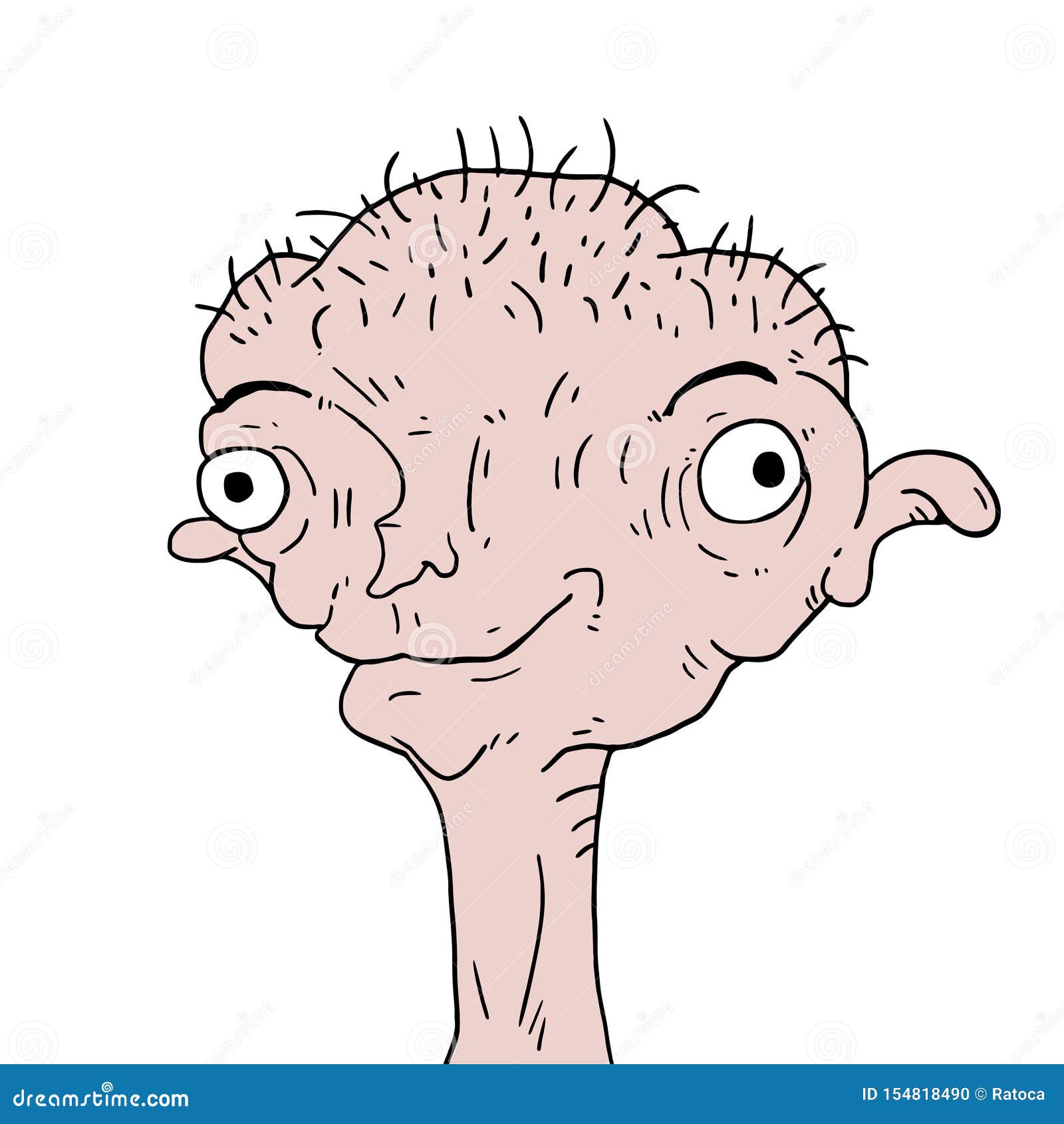Have you ever noticed how some of the most beloved characters in movies and TV shows are the ones that don't exactly fit the "pretty" mold? Yeah, me too. These ugly characters, as they're sometimes labeled, often end up being the most memorable and impactful. They bring a unique depth to stories that pretty-boy protagonists just can't touch. And trust me, there's a lot more to them than meets the eye.
Let’s face it, the world is obsessed with beauty. Everywhere you look, there's this ideal of perfection shoved down your throat. But guess what? Some of the best characters out there break all those rules. They're quirky, flawed, and sometimes downright weird-looking. And yet, they have this magnetic charm that draws us in. It's like they’re telling us it's okay to not be perfect.
In this article, we're diving deep into the world of ugly characters—what makes them so special, why we love them so much, and how they shape our favorite stories. So, grab your popcorn, and let's get started!
Read also:Is Carol Held Knight Still Alive Unveiling The Mystery Behind The Iconic Figure
Here’s what we’re covering:
- Biography of Iconic Ugly Characters
- Defining What Makes a Character "Ugly"
- Why Ugly Characters Are So Popular
- The Psychological Appeal of Ugly Characters
- Ugly Characters in Media
- Examples of Iconic Ugly Characters
- Impact on Audiences
- Design Choices Behind Ugly Characters
- Representation and Diversity
- The Future of Ugly Characters
Biography of Iconic Ugly Characters
Before we jump into the nitty-gritty, let’s take a moment to appreciate some of the most iconic ugly characters in history. These aren’t just random characters—they’ve left a lasting impression on pop culture. Here’s a quick peek at a few:
Biographical Overview
Take Gollum from "The Lord of the Rings," for instance. This guy’s not exactly winning any beauty contests, but his story is so compelling, you can't help but root for him. Or how about Shrek? Yeah, the big green ogre who’s anything but handsome. And yet, he’s one of the most beloved characters in animation.
Here’s a quick bio table for some of these legends:
| Name | Appearance | Personality | Notable Works |
|---|---|---|---|
| Gollum | Slender, pale, with huge eyes | Obsessive, cunning, tragic | The Lord of the Rings |
| Shrek | Large, green, ogre-like | Grumpy but kind-hearted | Shrek series |
| Hagrid | Giant, bearded, rugged | Gentle, loyal, protective | Harry Potter series |
Defining What Makes a Character "Ugly"
Now, let’s talk about what exactly makes a character "ugly." Is it all about looks, or is there more to it? Spoiler alert: it's way more than just appearances.
Physical Traits vs. Personality
Sure, some characters have features that might not align with traditional beauty standards. But let’s not forget, it’s often their personalities that make them truly unforgettable. Think about Hagrid from "Harry Potter." He’s big, bearded, and kind of rough around the edges, but his heart is pure gold. That’s what makes him so endearing.
Read also:Deez Nuts Guy The Viral Sensation Who Conquered The Internet
Here’s a quick breakdown:
- Physical Traits: Can include scars, deformities, or unconventional features.
- Personality: Often quirky, humorous, or deeply empathetic.
Why Ugly Characters Are So Popular
So, why do we love these characters so much? Is it just because they’re different? Or is there something deeper at play?
Breaking the Mold
Ugly characters challenge our perceptions of beauty. In a world where perfection is often glorified, they remind us that there’s beauty in imperfection. They’re relatable, flawed, and real. And let’s be honest, who doesn’t love a good underdog story?
According to a study by Harvard University, characters with unconventional looks often resonate more with audiences because they feel more authentic. It’s like they’re saying, "Hey, it’s okay to not fit the mold."
The Psychological Appeal of Ugly Characters
There’s actually a lot of psychology behind why we love ugly characters. It’s not just about their looks—it’s about the emotions they evoke.
Emotional Connection
These characters often have complex backstories that make them relatable. They’ve faced struggles, overcome obstacles, and have a depth that’s hard to ignore. It’s like they’re holding up a mirror to our own lives, showing us that it’s okay to be different.
Ugly Characters in Media
From movies to TV shows, ugly characters have made a huge impact on media. Let’s take a look at some of the most memorable appearances.
Iconic Appearances
- Gollum in "The Lord of the Rings"
- Shrek in the Shrek series
- Hagrid in "Harry Potter"
These characters have become cultural icons, proving that beauty isn’t everything when it comes to making a lasting impression.
Examples of Iconic Ugly Characters
Let’s dive into some specific examples of ugly characters that have stolen our hearts.
Character Spotlight
Take Yoda from "Star Wars," for example. This little green guy is far from conventional beauty standards, but his wisdom and charm make him unforgettable. Or how about Stitch from "Lilo & Stitch"? He’s a little monster, but his antics and loyalty make him one of the most beloved characters in Disney history.
Impact on Audiences
Ugly characters have a profound impact on their audiences. They challenge our perceptions, evoke empathy, and remind us of the beauty in imperfection.
Audience Reaction
Studies show that audiences often form deeper connections with characters who don’t fit traditional beauty standards. It’s like these characters are giving us permission to embrace our own flaws.
Design Choices Behind Ugly Characters
Have you ever wondered why certain characters are designed to look the way they do? There’s a lot of thought that goes into it.
Creative Decisions
Designers often use unconventional features to make characters stand out. It’s a way of saying, "Hey, look at me—I’m different, and that’s okay." Whether it’s exaggerated features or unique color palettes, these choices help define a character’s identity.
Representation and Diversity
Ugly characters play a crucial role in representation and diversity. They show us that beauty comes in all shapes and sizes—and that’s a message we all need to hear.
Inclusivity in Media
By including characters with unconventional looks, media creators are promoting inclusivity and acceptance. It’s a powerful reminder that everyone deserves to be seen and valued.
The Future of Ugly Characters
So, what does the future hold for ugly characters? Will they continue to thrive in media, or will they fade into obscurity?
Trends and Predictions
With the growing emphasis on diversity and representation, it’s likely that ugly characters will continue to play a significant role in media. They’re here to stay, and we couldn’t be happier about it.
As we wrap up, let’s take a moment to appreciate the magic of ugly characters. They remind us that beauty isn’t just skin-deep—it’s about the heart, the soul, and the stories we tell.
Final Thoughts
Ugly characters have a way of sneaking into our hearts and staying there. They challenge our perceptions, evoke empathy, and remind us of the beauty in imperfection. So, the next time you see a character that doesn’t fit the "pretty" mold, take a closer look. You might just find a new favorite.
Now, it’s your turn. Do you have a favorite ugly character? Let us know in the comments below. And if you enjoyed this article, don’t forget to share it with your friends. Who knows? You might just introduce someone to their new favorite character!


